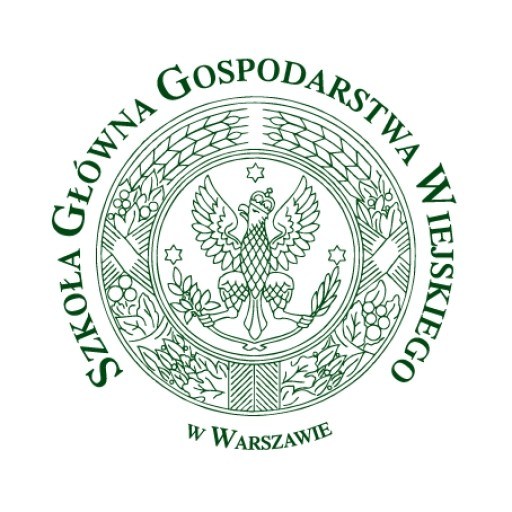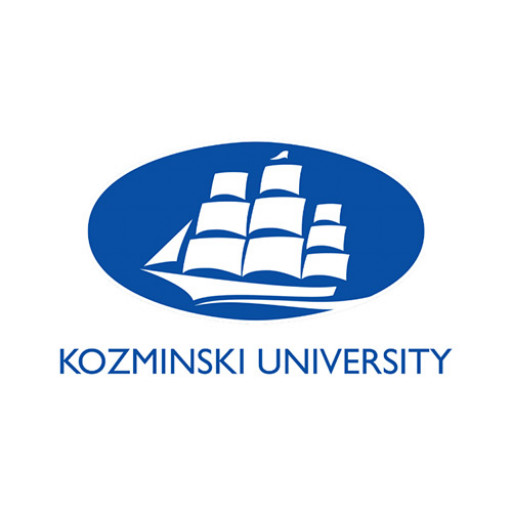The specialization in Information Systems in Management within the Informatics and Econometrics program at Warsaw University of Life Sciences offers students a comprehensive education at the intersection of information technology and business management. This innovative programme is designed to equip future professionals with the knowledge and skills necessary to develop, implement, and manage advanced information systems that support strategic decision-making and operational efficiency in various organizational settings. Throughout the course of study, students gain a solid foundation in computer science, data management, software engineering, and business processes, enabling them to analyze complex problems and devise effective technological solutions. The curriculum covers a wide range of topics, including database systems, enterprise resource planning (ERP), business intelligence, data analysis, programming, and project management, all integrated with a strong emphasis on the application of these technologies in real-world management scenarios.
Students also learn about the ethical and legal aspects related to information systems, cybersecurity, and data privacy, preparing them to address contemporary challenges in a rapidly evolving digital landscape. Practical training is a core component of the programme, with opportunities for internships, project work with leading companies, and collaboration with industry experts. This hands-on approach ensures graduates are well-prepared to enter the workforce as competent specialists capable of designing and maintaining information systems that support various functions such as logistics, agriculture management, finance, and marketing. Additionally, the programme promotes the development of soft skills, including communication, teamwork, and problem-solving, which are essential for managerial roles.
Graduates of this specialization are equipped to work as system analysts, IT consultants, project managers, or data analysts within public institutions, private companies, and non-profit organizations. They are also prepared for further postgraduate studies or professional certifications in the field of information technology and management. As part of a leading university known for its focus on life sciences and economics, students benefit from a multidisciplinary approach that combines technological expertise with insights into economic and organizational processes, fostering innovative thinking and a proactive attitude toward digital transformation in management. The programme emphasizes research-based learning and prepares students to adapt to continuous technological changes, ensuring they remain competitive in a dynamic job market. Overall, the specialization in Information Systems in Management aims to develop highly skilled professionals capable of leveraging information technology to improve efficiency, optimize processes, and contribute to strategic growth within various economic sectors.
The Informatics and Econometrics program with a specialization in Information Systems in Management at Warsaw University of Life Sciences offers students a comprehensive education combining the fields of computer science, economics, and management. The program aims to equip future specialists with advanced knowledge and practical skills necessary to analyze, design, and implement information systems that support decision-making processes in various organizations. Throughout the course of study, students will explore the fundamentals of programming, database management, and information technology infrastructure, alongside economic theories, models, and quantitative methods essential for econometric analysis.
The curriculum emphasizes the development of competencies in data analysis, business intelligence, and the integration of information systems within enterprise environments. Students will learn to utilize modern tools and software, such as statistical programming languages, data visualization platforms, and enterprise resource planning systems, to solve real-world problems encountered in management and business processes. The program also covers topics related to the strategic use of information technology, cybersecurity, and the legal and ethical aspects of data processing.
In addition to theoretical foundations, students participate in practical projects, case studies, and internships, which enable them to apply their knowledge in a professional setting. This approach ensures graduates are well-prepared for careers in IT consultancy, business analysis, project management, or specialized roles within companies operating in various sectors of the economy. The program fosters not only technical expertise but also critical thinking, problem-solving, and communication skills necessary to adapt to the rapidly evolving technological landscape.
Graduates of the program will receive a Master’s degree, opening doors to opportunities in both the private and public sectors, including positions in consulting firms, financial institutions, government agencies, and technology companies. The interdisciplinary nature of the program ensures that students develop a balanced understanding of information technology, economic analysis, and management principles, making them highly competitive in the labor market. The university’s excellent academic staff, modern laboratories, and close collaboration with industry partners further enhance the learning experience, preparing students to become innovative leaders who can effectively leverage information systems for strategic advantage and organizational success.
Completed the first degree of studies:
a) Engineering in specializations: informatics, mathematics, electronics, electrical engineering, logistics, production engineering
b) Bachelor in specializations: economy, financial, management, informatics and econometrics.
Qualification based on results from the first degree studies (grades average)
Verified command of English
Number of the place available: 15 to 17.
The financing of the Informatics and Econometrics (Specialisation: Information Systems in Management) program at Warsaw University of Life Sciences is primarily supported through a combination of university funds, governmental grants, and student tuition fees. The university allocates resources to ensure the high-quality delivery of the curriculum, including investments in modern computer laboratories, software licenses, and academic resources necessary for the program. Additionally, the program benefits from national and European Union funding aimed at promoting higher education and research in the fields of information technology and economics. Such grants often support faculty development, research projects, and infrastructure improvements, thereby enhancing the learning environment for students.
Tuition fees are a significant component of the program's financing structure. In Poland, tuition fees for international students are set according to regulations and vary depending on the student's domicile and program specifics. For domestic students, the program is often subsidized by the state, making it more affordable, though some costs are covered by student fees for optional services or advanced modules. The fees are used to cover administrative costs, academic staff salaries, and other operational expenses necessary to maintain the program's quality.
Apart from government and university funding, students may also access scholarships, grants, and financial aid programs designed to support talented and financially needy students. Warsaw University of Life Sciences actively participates in national scholarship schemes, including the "Mobility Program" and Erasmus+ exchanges, which provide additional financial support during student exchanges or internships abroad. These financial instruments are aimed at enhancing international cooperation and practical training opportunities.
Private sponsorships and partnerships with industry also contribute to the program's financing. Collaborations with companies in the IT and management sectors provide funding for internships, research projects, and guest lectures. These partnerships help tailor the program to meet current industry standards, making graduates more competitive in the job market.
Overall, the financing structure of the Informatics and Econometrics program at Warsaw University of Life Sciences relies on a diverse mix of public funds, private sponsorships, student contributions, and international grants. This comprehensive approach ensures the sustainability and continuous improvement of the program, providing students with a solid foundation in information systems and management. The university’s commitment to maintaining high academic standards and fostering practical skills is reflected in its careful financial planning and resource allocation dedicated to this specialized field of study.
The Informatics and Econometrics (Specialisation: Information Systems in Management) program at Warsaw University of Life Sciences (SGGW) offers a comprehensive education designed to equip students with the knowledge and skills necessary to analyze and implement information systems within management contexts. The curriculum emphasizes the integration of informatics with economic analysis, enabling graduates to effectively utilize information technology to improve organizational decision-making processes. Students learn fundamental concepts of programming, data management, and system analysis, alongside advanced topics such as data science, business intelligence, and enterprise resource planning. The program aims to develop not only technical competencies but also managerial skills, preparing students for leadership roles in various sectors, including agriculture, forestry, environmental management, and related industries. Throughout the course, students engage with practical projects, internships, and case studies that reflect real-world challenges faced by organizations in managing data and information systems. The program is designed to foster critical thinking, problem-solving, and effective communication, ensuring graduates can operate efficiently in multidisciplinary teams. Additionally, the specialization in Information Systems in Management emphasizes the strategic role of IT in enhancing productivity, competitiveness, and innovation within organizations. The faculty involves experienced academics and industry professionals who bring their expertise into classroom teaching and research, offering students unique insights into current trends and technologies. Graduates of this program are prepared for careers in consulting, IT management, systems analysis, data analysis, and digital transformation initiatives. The program also provides a solid foundation for further academic pursuits, including Master's and doctoral studies. Overall, the education provided aims to bridge the gap between technical informatics skills and economic understanding, meeting the growing needs of modern organizations for proficient specialists capable of leveraging information technology in management and decision-making processes.






